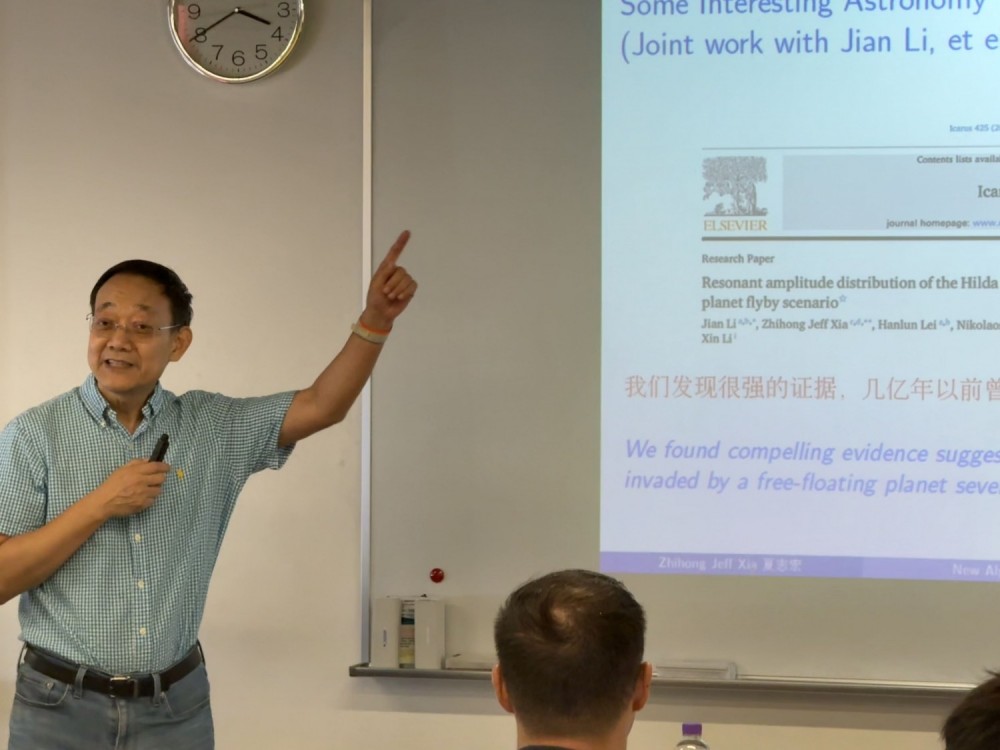On the afternoon of October 23, 2024, the Faculty of Data Science of City University of Macau held an academic lecture titled "A New Algorithm for Machine Learning and Artificial Intelligence" in L307. This lecture specially invites Zhihong Xia, Vice Dean of the Institute for Advanced Study of the Greater Bay University (in preparation), to be the speaker.
Professor Zhihong Xia is the Vice Dean of the Institute for Advanced Study of the University of the Greater Bay Area (preparatory), the founding director of the Department of Mathematics at Southern University of Science and Technology, a founding member of the Future Science Award, and the Panke Chair Professor of Mathematics at Northwestern University. During his academic career, Professor Xia solved (the Painlevé Conjecture), which has been unresolved for a century, and won the National Young Investigator Award, the Sloan Research Fellowship, the first Blumenthal Award for Advancement of Pure Mathematics, and the Monroe Martin Applied Mathematics Award. He is also the speaker at the International Congress of Mathematicians (ICM) (1998) and many other major international academic awards.
In the lecture, Professor Zhihong Xia introduced a new machine learning algorithm inspired by complex analysis. This algorithm is better formulated mathematically and can approximate universal functions more efficiently. The algorithm can be implemented as two self-learning neural networks: CauchyNet and XNet. CauchyNet is suitable for low-dimensional problems such as extrapolation, interpolation, and numerical solution of partial differential equations (PDEs) and ordinary differential equations (ODEs). XNet is suitable for high-dimensional problems such as image and speech recognition, transformers and large language models. The algorithm has been implemented in a variety of scenarios and shows high efficiency and accuracy. It performs better than many popular physics-inspired neural network (PINN) models and outperforms the Kolmogorov-Arnold Network (KAN) in a variety of scientific calculations. In a test set of medical images, it improved accuracy from 88% to 98%. The algorithm is currently being tested on large language models, and small-scale tests show great potential.
The atmosphere at Professor Zhihong Xia’s academic sharing was lively. Teachers and students present actively asked questions and had in-depth exchanges with Professor Xia. This lecture provided teachers and students with valuable academic guidance and inspiration in the field of machine learning algorithms and jointly promoted the positive development of artificial intelligence.









